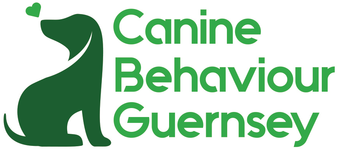|
A NEW campaign to improve animal welfare standards in the island is being launched today.
The Autumn Aversives ‘Amnesty’, launched by Canine Behaviour Guernsey and supported by the GSPCA, aims to raise awareness among pet owners about the damaging effects these certain training products and devices can have on our animals’ physical and mental health. An aversive is something unpleasant that is used to suppress emotions and diminish an unwanted behaviour. This can be an unpleasant sound, a physical correction, the pain caused by an electric-collar, choking or prong collar correction, or a harsh scolding. A wide-range of these items continue to be sold and marketed today with owners understanding little about how they are exactly designed to work. In an attempt to improve that understanding, Canine Behaviour Guernsey is asking all pet owners to hand in any aversive items they might have lying around the house, swap them for ethical training methods and make a firm commitment to raising animal welfare standards in the island. ‘We are using the term “amnesty” lightly because, while you might think they should be, these products are not actually illegal,’ said Canine Behaviour Guernsey founder and owner Anna Jane Brehaut. ‘Whether they should be made illegal is a political argument that has been rumbling on for some time and I expect it will continue to rumble on as long as other priorities continue to take to the fore. ‘However, in the interests of animal welfare we can’t just sit back and wait for the debate to play out for another five, 10 years or so. We want to do something now.’ As a practicing behaviourist for two years now, Miss Brehaut has seen a number of people reach for aversive devices as they look for an ‘overnight cure’. It can lead people down a slippery slope, as if one does not appear to make a difference they try another and another and so on. ‘These devices can be used for all sorts of different things but the most common behaviours I see them being used for are excessive barking, pulling on the lead and other impulse control related behaviours and recall,’ she said. ‘The reality is that if the items are perceived as working, it is only because the dog has been bullied and suppressed into a state of learned helplessness and depression – a sorry state for any living being. ‘The devices can also actually make the behaviour much worse due to association.’ Miss Brehaut is hoping the campaign will also raise awareness of animal mental health. ‘A recent national article reported that 1 in 10 dogs in the UK is suffering from a mental health issue but yet 20% of people believed the dog’s were just acting up for attention. ‘The world has made great strides in understanding and recognising human mental health - we now need to raise awareness that we aren’t the only species who can live with mental health struggles.’ An Amnesty box will be placed at the GSPCA reception desk. People can hand in any aversive item anonymously. ‘We do not aim to criticise or judge anyone who may have used or who are using these products. Many people will not have even realised that the product they are using is aversive and we totally understand that. ‘We have also included anti-pull headcollars and anti-pull harnesses, which aim to stop a dog from pulling through tightening around the snout or body, on our amnesty list because they are also of an aversive nature and there are some great alternative products out there that are more effective and can be used instead in association with training.’ GSPCA Welfare and Behaviour manager Lorna Chadwick, a member of the Association of Pet Dog trainers who has been working with rescue dogs for over 20 years, said dog ownership has changed a great deal over the years. ‘It is no longer necessary, or acceptable, to use harsh methods in training or to use accessories that may cause your dog discomfort when walking,’ said Mrs Chadwick. ‘We have come full circle and now apply behavioural sciences (Pavlov and Skinner) to all of our dog training and behaviour programmes. Pain and fear is not in the best interest of the dog and certainly compromises their welfare as well as compounding any behavioural issues they may have. It is important that any methods or equipment used are kind, fair and effective.’ Anyone who would like more information or would like advice on alternative and ethical training tools and methods can email Miss Brehaut at [email protected] or contact Mrs Chadwick at the GSPCA on 257261. The GSPCA reception will be open from 9am to 5pm Monday to Saturday and 11am to 4pm Sundays. The amnesty will run until Sunday 1 December. Items included in the amnesty list (but not limited to): *Electric shock collars *Air spray collars, including citronella collars * Ultrasonic Bark Control Collars *Pet corrector sprays (or any bottle that has been used as a substitute) *Prong collars *Choke chains *Martingale collars used as choke devices (i.e not fitting properly so it acts as a choke) *Slip leads being used as a choke device for pet dogs (we understand there is a use in sports such as gundog training providing the dogs have been trained to walk loose lead first) *Anti-pull head collars that tighten around the snout *Anti-pull harnesses that tighten around the body
0 Comments
Leave a Reply. |
AuthorAnna Jane Brehaut Archives
February 2024
Categories© Anna Jane Brehaut 2019
|


 RSS Feed
RSS Feed